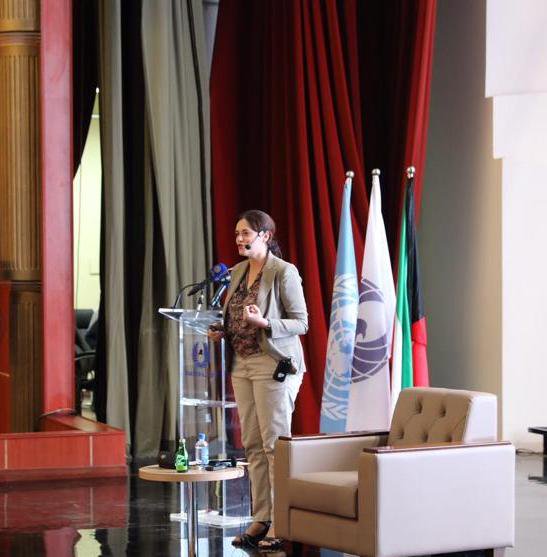Training
Promoting integrity in the Kuwait education system through the development of teacher codes of conduct

The workshop was jointly organized by Nazaha - the Kuwait Anti-Corruption Authority, and the State of Kuwait Ministry of Education.
The main objective of this workshop was to strengthen the skills of participants in designing and implementing teacher codes of conduct.
The approximately 150 participants came from all six governorates of Kuwait, and included representatives of the Ministry of Education and Nazaha, teacher supervisors - who provide guidance to teachers on areas such as Kindergarten, Arabic language, Social Studies, and Islamic studies – and head teachers from both public and private schools.

IIEP's Muriel Poisson addressing participants at the NAZAHA workshop in Kuwait
Drawing on international experience and existing codes from around the world, participants were taken through the process of designing a code of conduct, from the objectives and content, the main steps involved in its design and implementation, and how to monitor the effectiveness of a code once it has been adopted. The audience were also encouraged to examine the major reasons for adopting a code in Kuwait and what its main characteristics would be. During working group sessions, participants helped draw up a development plan for a teacher code of conduct in Kuwait, and came up with very detailed and practical suggestions of how it could be implemented.

The workshop was also an opportunity to pilot the Arabic version of the IIEP ‘Guidelines for the design and effective use of teacher codes of conduct’, translated and formatted by Nazaha in preparation for this activity.
These guidelines can be used by countries that wish to successfully design a teacher code of conduct (or review an existing one). Aimed at education stakeholders at both the local and national level, this publication sets out the major steps involved in the development of a code, as well as the appropriate mechanisms to ensure the effective dissemination, application, and monitoring of a code at all levels of the system. A number of resources and tools on all aspects of the guidelines are also included.
You can access here a short video made by Nazaha.


